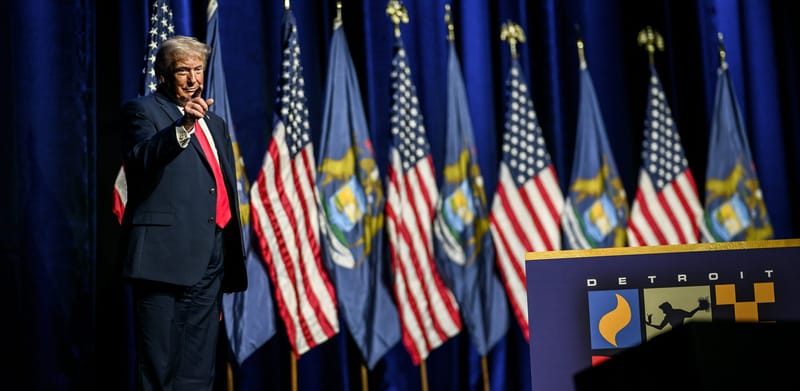Is Trump the CEO of US Inc. or presiding over a new form of state capitalism?
Trump’s profit-driven, interventionist approach blurs lines between business and state, fostering cronyism and market distortion. America isn’t state capitalist yet, but its governance increasingly mirrors China’s model without discipline.
I magine you’re a contestant on a popular TV current affairs quiz and the question is about America.
Is it now:
(a) United States Inc.
(b) State capitalism
(c ) Neither, as of now
The right answer is (c).
The first option has some merit because Donald Trump appears hell bent on governing the United States like a business. He is openly seeking profit for the public coffers through transactional trade deals, mafia-style shakedowns of foreign administrations and monetised immigration schemes.
But Mr Trump’s record as a businessman is patchy — he has been bankrupt multiple times — and there is little reason so far to believe that his manoeuvres are benefiting anyone other than a cabal, a small group of family, friends, allies.
United States, Inc. is unlikely to enable America to prosper and its people to thrive.
The second option sounds about right because the Trump administration is intervening aggressively in private business, bending rules as it pleases and making up others.
The forced takeover of TikTok comes just weeks after the US government took a 10 per cent in Intel, secured a “golden share” in US Steel as a condition of its sale to Nippon Steel, created a multibillion-dollar partnership between the Pentagon and rare-earth producer MP Materials and negotiated revenue-sharing agreements with chipmakers Nvidia and AMD in exchange for easing export restrictions.
This isn’t strictly state capitalism (a la China) but lawless governance, which distorts markets, affects private companies’ behaviour and changes political calculations.
As analysts have noted, if companies start to expect bailouts or favours from the administration, they may start to privilege politically desired projects rather than market-friendly ones. Intel itself made the following comment in its SEC filing about its unprecedented tie-up with the US administration: “It is difficult to foresee all the potential consequences” of the government becoming a significant shareholder of a private company.
China’s state capitalism has focused on creating infrastructure in record time and largely delivered on that, even as it bred corruption and waste and engaged in periodic whimsical purges.
The US isn’t quite there yet — on both good bits and bad.

GOING FURTHER
Trump administration mulls taking stakes in defence firms including Lockheed Martin | BUSINESS TIMES
Murdoch, Ellison and China: what we know about the US’s TikTok deal | THE GUARDIAN
What you need to know about the government’s 10% stake in Intel | PBS
Sources:
▪ This piece was first published in Medium and re-published in Europeans TODAY on 7 October 2025 under a Creative Commons Attribution-NonCommercial 4.0 International licence. | The author writes in a personal capacity.
▪ Cover: Flickr/THE WHITE HOUSE. (Licensed under a Creative Commons Attribution-ShareAlike 4.0 International License.)








